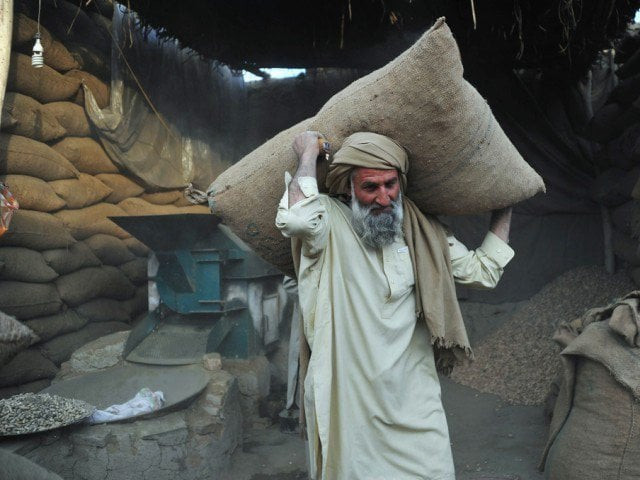Human resource: ‘Labour policy draft lacks enforcement mechanism’
Activists say their recommendations for improving policy not considered.

Labour Policy draft lacks enforcement mechanism. PHOTO: AFP
The biggest problem with labour laws and policies in our country has always been the lack of implementation, says Khalid Mahmood of the Labour Education Foundation.
Talking to The Express Tribune, Mahmood says that the draft of the latest Punjab Labour Policy fails to address this aspect. “We have seen and experienced earlier the problem where workers have been given the right to unionise. Owners do not let them. Unions exist only on paper. Most often, workers are too intimidated by owners to unionise,” he says.
The same problem has been highlighted by Chaudhry Nasim Iqbal, the Pakistan Worker’s Federation (PWF) Punjab region president. He says that the new labour policy has been drafted keeping in mind the GSP Plus status awarded to the country by the European Union. “It addresses child labour, gender equality and bonded labour. However, the problem lies with the implementation framework. Take, for example, the tri-partite labour conference that will be constituted under the policy. It will have representation of the government, unions and owners in a policy dialogue. This clause has been a part of previous labour policies. It was never implemented,” he says.
Iqbal says PWF had given several recommendations to the government to improve the implementation of labour policies. “Those were not taken into account when drafting the new policy,” he says.
Ayaz Hussain, the Bonded Labour Liberation Front (BLLF) executive director, says that the policy discusses district vigilance committees (DVC). “In July 2013, the Supreme Court had directed governments to activate these bodies. However, this was never done. The DVCs were to monitor bonded labour and send regular reports to the labour secretary. The Home Department was supposed to publish these in a consolidated report. We have not seen such a report so far,” he says.
Syeda Ghulam Fatima, the BLLF secretary general, says employers, who have registered their workers for providing them social security cards, mostly do not pay the fees. “We see these cases on a regular basis where workers go to social security hospitals, seeking treatment but are turned back because their employers have not paid the amount due towards the department for several years,” she says. Fatima says that this shows a lack of seriousness within the government to implement its policy.
Umme Laila Azhar, the HomeNet Pakistan executive director, says that the policy mentions home based workers (HBW) and domestic workers (DW) for the first time. “Introducing them in the labour policy creates more space for them to bargain for their rights. They can now demand social security. It shows that the government is serious about giving them their rights,” she says.
Azhar says that the mention of HBWs is a positive step, but the reform is incomplete without the introduction of a policy for HBWs. “The matter has been pending since 2012. The latest draft of labour policy provides no such definition,” he says.
Mahmood says the issue of farm labour has not been addressed properly. “Seventy-five to eighty per cent of Punjab’s population works in the agriculture sector. They have not been given the right to unionise under this policy or any other policy,” he says.
He says that despite attaining the GSP Plus status, the government has not made labour policy a priority area. “If International Labour Organisations (ILO) conventions are implemented, the labourers can benefit from the GSP Plus status. However, there is no seriousness shown by the government in this regard,” he says.
Published in The Express Tribune, June 4th, 2015.


















COMMENTS
Comments are moderated and generally will be posted if they are on-topic and not abusive.
For more information, please see our Comments FAQ